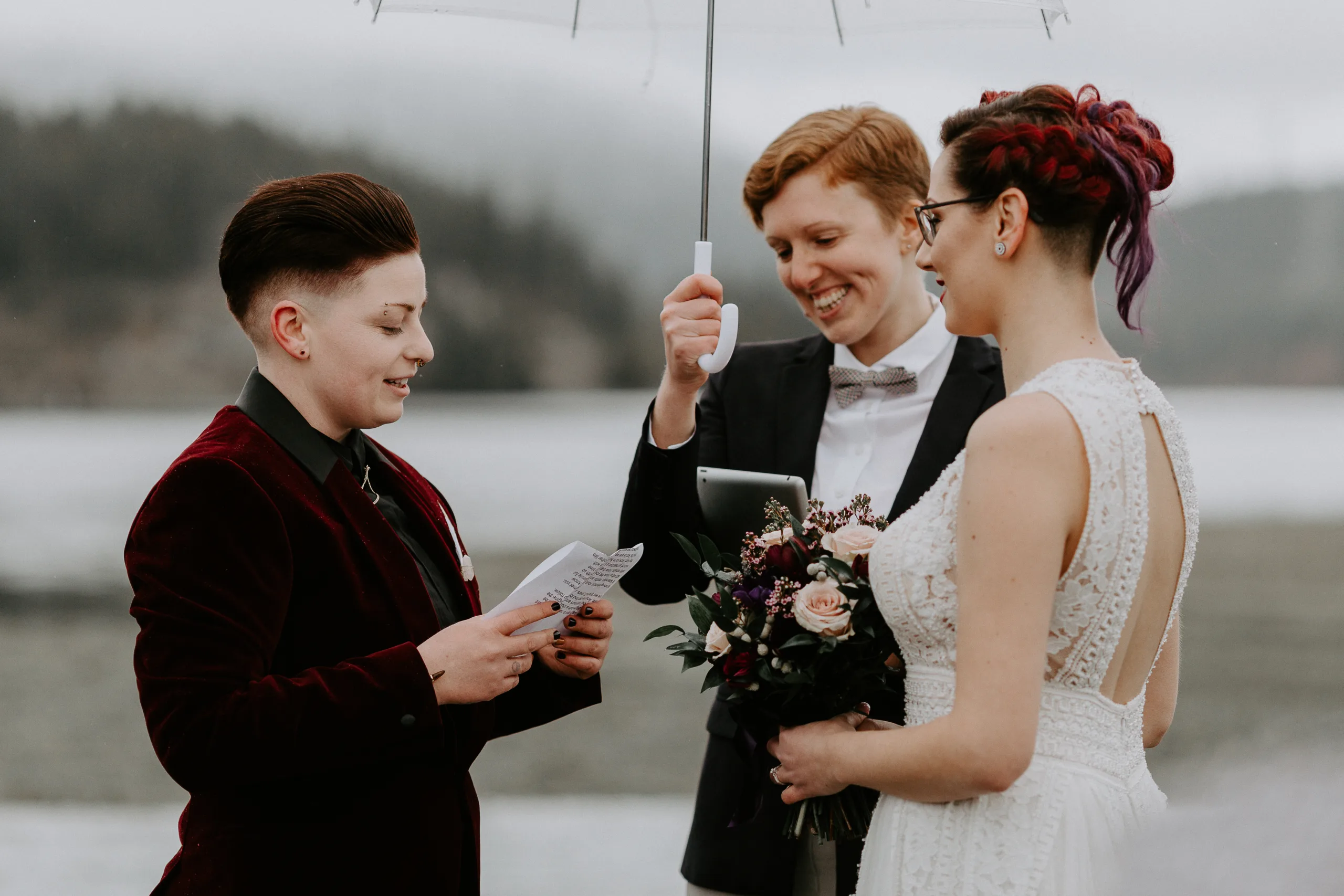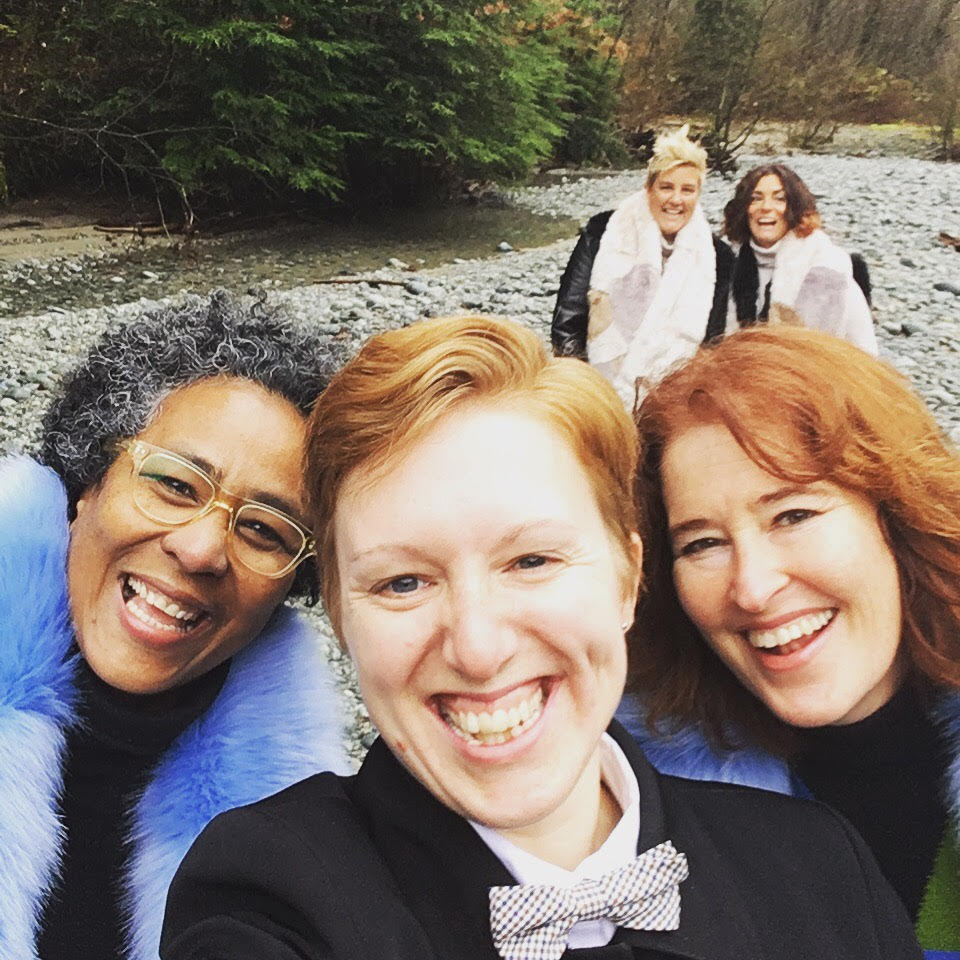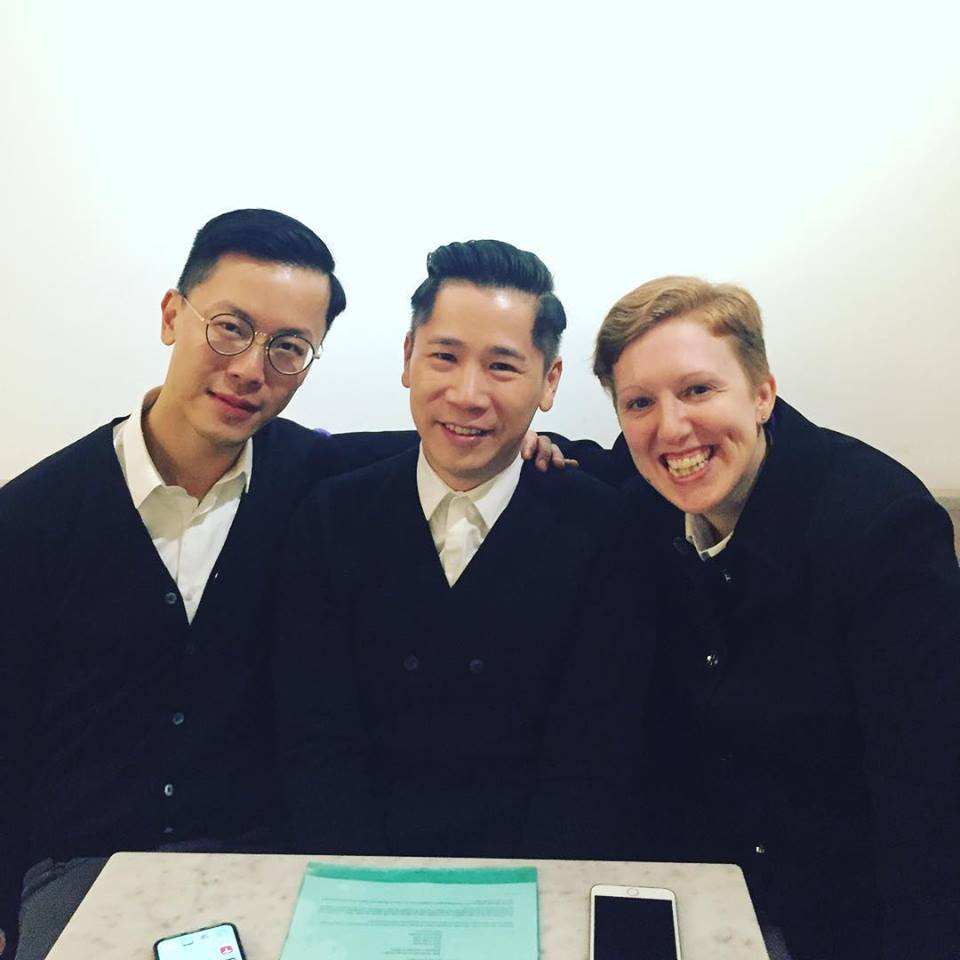We are so excited to bring you this awesome interview all about queer weddings with our officiant, Beth. Beth is an officiant working in the Lower Mainland and Greater Vancouver area. One of Beth’s greatest passions is officiating for fellow LGBTQ+ couples. Read on to learn more about Beth, her amazing wedding to Danice, and her awesome advice to other queer couples planning their weddings.
Update: This post was originally published in 2018 using the term “same-sex.” We have updated this post to remove this term as we know it is limiting and exclusionary. Thank you for allowing us to learn and we apologize to anyone who felt excluded by the previous version of this post.
Meet Beth
Please introduce yourself!
My name is Beth Carlson-Malena, and I’m proud to be an officiant with Young Hip & Married. I grew up in Saskatoon and moved to Vancouver in 2005 to study theology. I met my wife at seminary, and we were married four years ago. We spent three years working in Toronto, but last year we decided to settle in Vancouver and moved back, and we’ve been loving it.
How did you get into officiating?
Growing up as a pastor’s kid, I got to watch my dad officiate a lot of weddings. Sometimes my connection to him meant opportunities to be involved in the weddings myself, mostly playing piano for the prelude music. Even though I enjoyed playing piano, I remember thinking it would be amazing to have my dad’s job, to be able to frame the service in a way that drew attention to the beauty of what was happening in that couple’s unique love story. More recently, a couple of years ago, as I met queer couples whose churches’ policies didn’t allow their own pastors to officiate at their weddings, I felt prompted to follow through on my childhood dreams. I have now had the chance to work with straight couples and LGBTQ+ couples, and it’s been such a joy to be invited into these important moments in their lives.
What are you doing when you’re not officiating weddings with YH&M?
I’m the Director of Community for Generous Space Ministries, which means i get to connect with hundreds of LGBTQ+ people across Canada and help them find spaces where they can express and explore both their faith and their sexuality/gender identity. It’s been my joy to be able to officiate weddings for some of these folks. I’m also in the midst of launching a church called Open Way in East Van with a friend of mine.
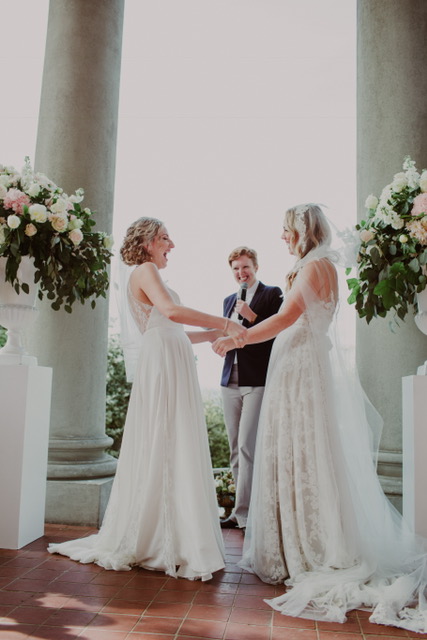
Your wedding
When did you get married? What was your wedding like?
My wife Danice and I were married in May 2014. We had been housemates for nine years before our wedding, but it took us each a long time to come to terms with our sexuality and the depth of our love for one another. Marriage was a difficult decision for us, because we knew it meant the end of our work as pastors in our denomination. But we’ve never regretted that choice, and have both found new ways to “pastor” people, and our love has made each other better. We got married in the evening at the False Creek Community Center with 200 friends and family witnessing, then served wedding cupcakes (made by several friends), before moving all the chairs to the side for a huge dance party!
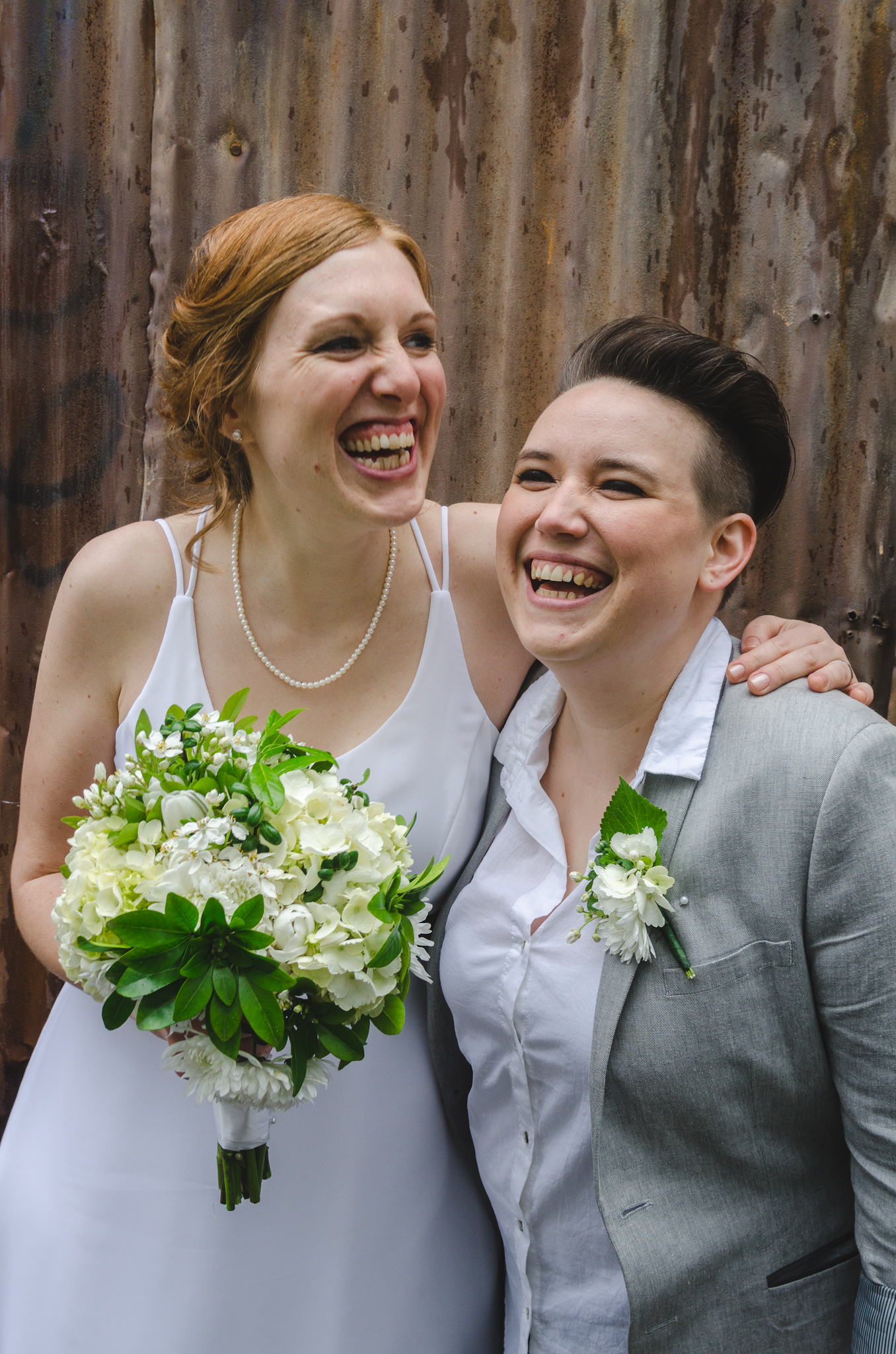
What part of your wedding day were you most looking forward to?
I was excited just to have all my favourite people gathered in the same place. My wife and I have always hosted the best dance parties – she’s a DJ. So we were really looking forward to our 200-person dance party!
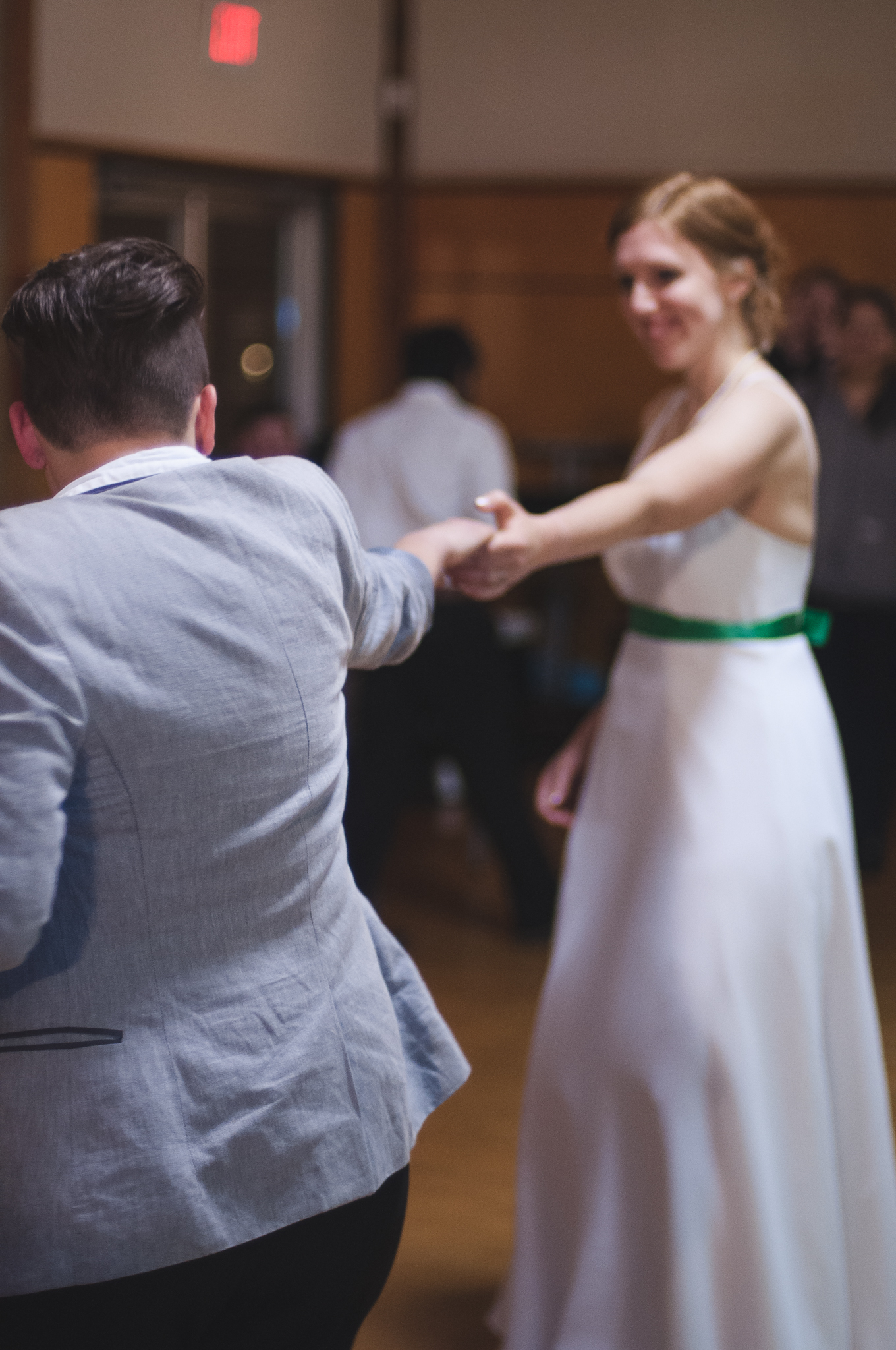
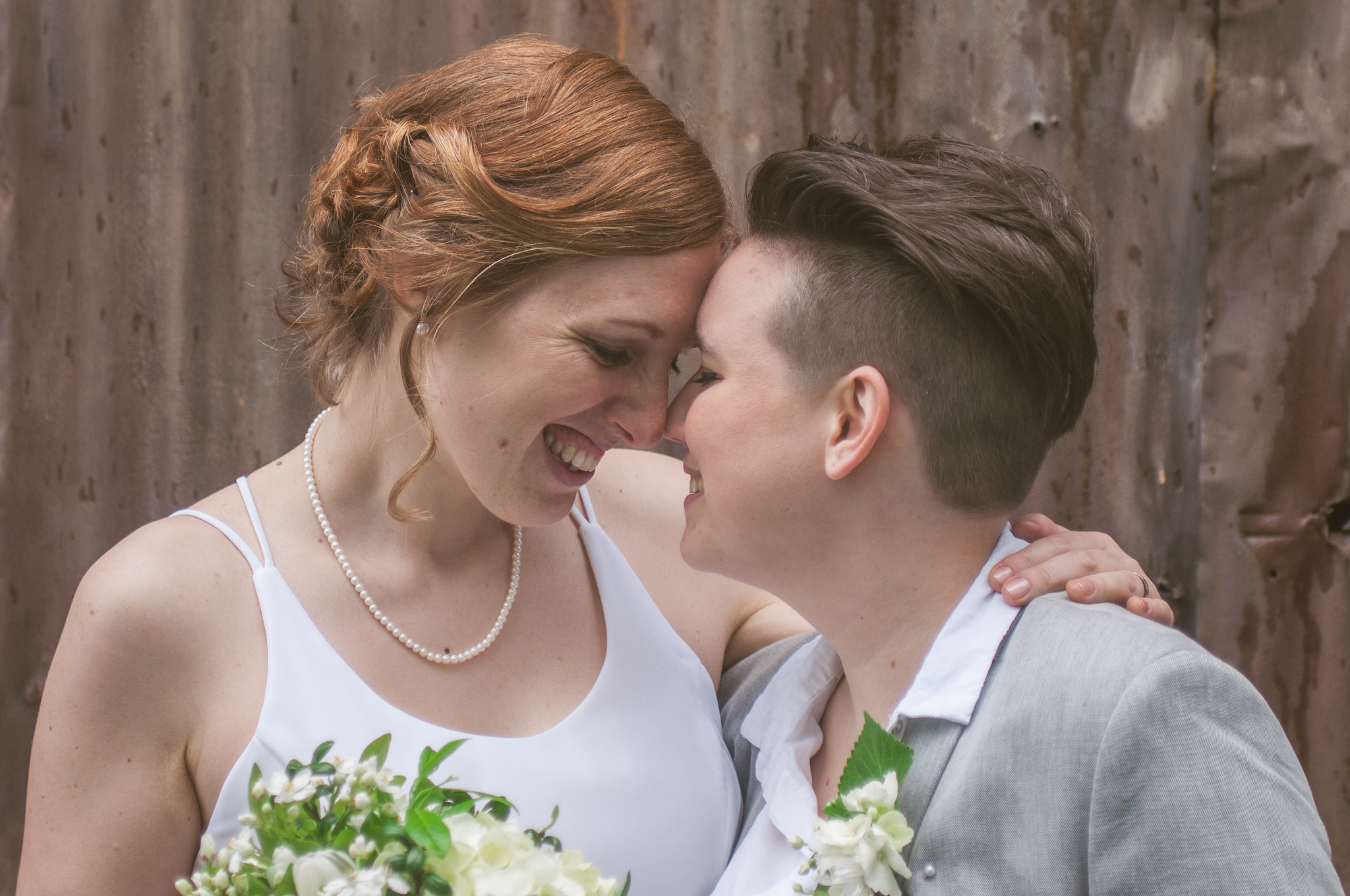
Were there any surprises you encountered planning your wedding or on the wedding day?
I know we were surprised how many decisions were involved in planning, and how difficult it was to figure out when they all had to be made! We ended up asking a friend to be our planner, even though she’d never done it before, and she was a huge help, even just in giving us deadlines.
What big differences did you notice planning a queer wedding?
There is so much freedom to think “outside the box” from the get-go, and to re-think traditions with patriarchal roots. For example, with two brides, there’s no way we could have a “normal” processional… which one of us would walk down the aisle? In the end, we decided to enter at the same time, each surrounded by a “posse” of our parents and siblings, walking not in the middle but on either side of the guests, and met in the middle at the front. It ended up being incredibly meaningful, representing the way our families had loved us and brought us to that point. One challenge of planning queer weddings is that you’re not always sure whom to invite, and who will agree to come, because you don’t always know if people support LGBTQ+ marriage. Some of the people we invited chose to turn us down for that reason, which was painful. But others made a point of showing up, even from great distances, because they wanted to demonstrate their love and support.
Officiating LGBTQ+ weddings
What does officiating queer weddings mean to you? What do you love about them?
It means a lot to be able to marry other queer couples, almost like “paying it forward” from my own wedding. It always fills me with gratitude for the people who have gone before us and made Canada a place where we can legally be married… especially when I’m marrying LGBTQ+ couples who are flying in from other countries. I love the complex narratives of so many of the love stories behind these weddings. There is often a great maturity to these couples. At very least, both parties have needed to come out to themselves and their loved ones, which requires courage and vulnerability. Many of them have had to overcome their own internalized fears, shame, and rejection to find the freedom to love each other. This brings a sacredness to what’s happening – their love is hard-won, precious, and rare. It’s such an honour to celebrate them, to acknowledge both the pain and the joy, and to also thank the friends and family who supported them through the ups and downs of their journey to marriage
Do you notice anything special or different with LGBTQ+ weddings compared to hetero weddings?
The details and form of these weddings are often more creative and personalized – because they’re already breaking with tradition, there aren’t very many things that feel like “musts” for these couples. There is often so much intentionality behind their ceremony choices and wordings. And one stereotype that’s often true… the dancing is off the hook!
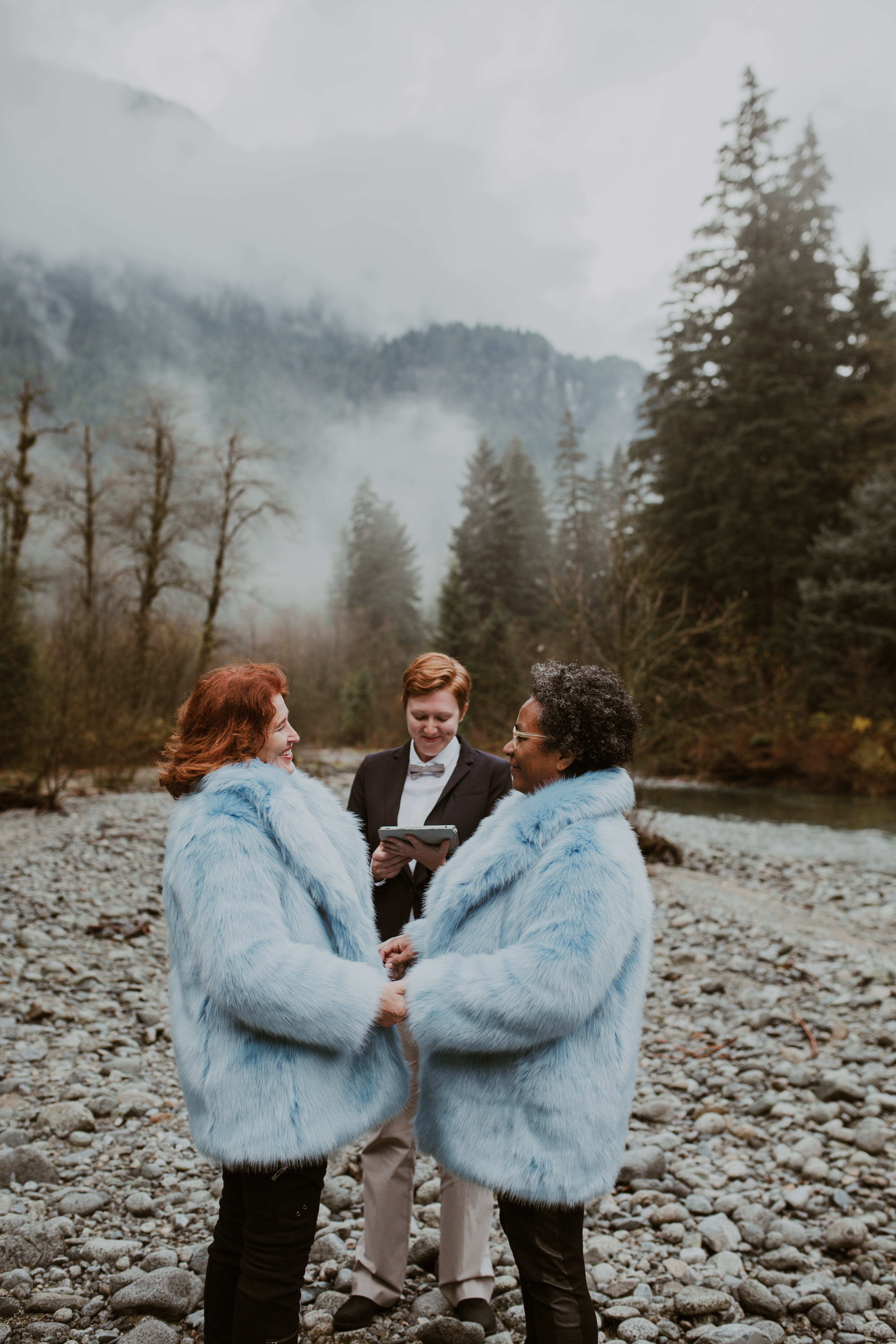
What advice do you have for LGBTQ+ couples planning their wedding?
Make sure your love story stays at the core of everything you plan – it is worth celebrating! Don’t be afraid to do something different… be free from the need to please people, and do what feels right for you. If you have unsupportive family or friends, set the boundaries you need to set, and lean on the people who are bending over backwards to love and celebrate you. There will likely be some grief mixed into your day – expect it, and receive it as a sign of the depth of your love even for those who do not yet understand your love. Take a moment to be grateful for those who have gone before you and have made it possible for you to marry the love of your life in Canada.
What can the wedding industry do to become more inclusive and supportive of LGBTQ+ weddings and marriages?
I think there have been some major shifts for the better in terms of acceptance, but there’s still a lot of work to do for the industry to be more friendly to non-binary trans people in particular. Please ask for people’s pronouns on your forms and questionnaires, or in person, and avoid having pre-set questions for “bride” and “groom” (or even assuming that someone will necessarily be comfortable with either word). Get used to the language of “spouse” and “partner,” and mix it into your vocabulary at least as much as “bride” and “groom.” Also, it would be great to see more overt signs of support – rainbow and trans flags on your websites and doors if you are inclusive and supportive of these couples.
Thanks to Beth for taking part in this awesome interview!
And thanks to Emily Nicole Photos for the feature image with Kirby and Tina!
